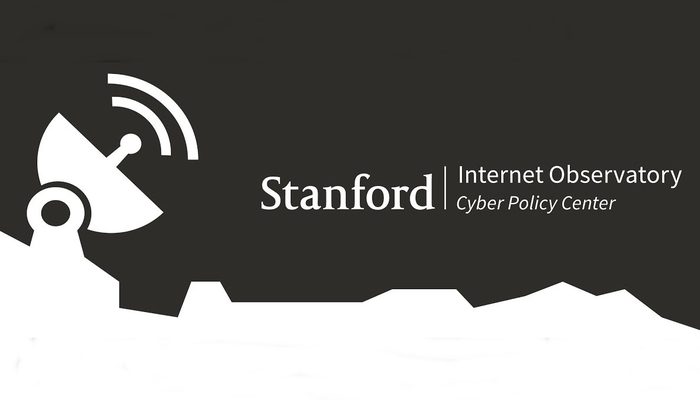The day has finally come – the Stanford Internet Observatory (SIO), known for its crackdown on free speech, is winding down operations. This comes after five tumultuous years filled with increasing investigations and growing disapproval from advocates of free speech. Interestingly, one can’t help but notice how SIO swiftly laid off its staff, including its top echelons, amidst the rising uproar.
The Media Research Center and other vocal free speech supporters have persistently labeled the SIO as a leftist apparatus forcing Big Tech to shun any opposing views. Especially striking were emails unveiled by the MRC that revealed the links between leftist media and SIO-related factions.
The Observatory’s founder, Alex Stamos, previous chief security officer of Facebook, has been shifted to an advisory role. Renée DiResta, overseeing research for the group, wasn’t offered a new contract, as cited in The Washington Post and the newsletter Platformer.
SIO extensively probed information categorized as deceptive by the left, and helped Big Tech apply brakes on constitutionally sanctioned speech, particularly pre the 2020 US elections.
Dan Schneider, MRC Vice President for Free Speech, congratulated the revamping of Observatory, emphasizing that this is just one battle won in the big war for protecting the First Amendment.
Started as a research lab in Stanford University’s Cyber Policy Center, SIO’s primary function was to check alleged misuse of social media by the so-called spreaders of misinformation. SIO initiated the contentious Election Integrity Partnership (EIP). This consortium, including researchers from other institutions like the University of Washington, flagged content as misinformation for online firms to censor leading up to the 2020 election.
According to the emails from the House Judiciary Committee’s Weaponization Subcommittee, EIP was initiated “at the request” of the Department of Homeland Security’s Cybersecurity and Infrastructure Security Agency (CISA). It was also disclosed that SIO and CISA collaborated to flag so-called disinformation.
The SIO directed another project, the Virality Project, engineered to counter certain COVID-19-related information. The work of this project aligned with government-sanctioned narratives about the pandemic, and they flagged any conflicting content to social media firms to block.
The role of the federal government and the leftist media in steering the operations at SIO is undeniable. The federal government’s support for SIO’s agenda has been unraveled by house Republicans and unearthed documents.
However, aggressive adversaries of free speech can relax. Despite the turbulence, Stanford University confirmed they’re not stepping back from their endeavors of censorship. The SIO operations will be run under new leadership, the university’s spokesperson, Dee Mostofi, declared.
Our freedom to express ourselves is at risk. It’s crucial now, more than ever, to contact our representatives and demand transparency and fairness from Big Tech. The preservation of free speech is a fight we need to carry on. The accountability to provide a platform for all views, devoid of the so-called “hate speech” rhetoric and ensuring equal footing for conservatives, lies with Big Tech.



